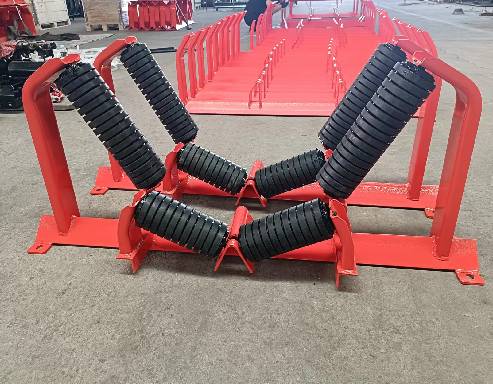 Afrikaans
Afrikaans  Albanian
Albanian  Amharic
Amharic  Arabic
Arabic  Armenian
Armenian  Azerbaijani
Azerbaijani  Basque
Basque  Belarusian
Belarusian  Bengali
Bengali  Bosnian
Bosnian  Bulgarian
Bulgarian  Catalan
Catalan  Cebuano
Cebuano  Corsican
Corsican  Croatian
Croatian  Czech
Czech  Danish
Danish  Dutch
Dutch  English
English  Esperanto
Esperanto  Estonian
Estonian  Finnish
Finnish  French
French  Frisian
Frisian  Galician
Galician  Georgian
Georgian  German
German  Greek
Greek  Gujarati
Gujarati  Haitian Creole
Haitian Creole  hausa
hausa  hawaiian
hawaiian  Hebrew
Hebrew  Hindi
Hindi  Miao
Miao  Hungarian
Hungarian  Icelandic
Icelandic  igbo
igbo  Indonesian
Indonesian  irish
irish  Italian
Italian  Japanese
Japanese  Javanese
Javanese  Kannada
Kannada  kazakh
kazakh  Khmer
Khmer  Rwandese
Rwandese  Korean
Korean  Kurdish
Kurdish  Kyrgyz
Kyrgyz  Lao
Lao  Latin
Latin  Latvian
Latvian  Lithuanian
Lithuanian  Luxembourgish
Luxembourgish  Macedonian
Macedonian  Malgashi
Malgashi  Malay
Malay  Malayalam
Malayalam  Maltese
Maltese  Maori
Maori  Marathi
Marathi  Mongolian
Mongolian  Myanmar
Myanmar  Nepali
Nepali  Norwegian
Norwegian  Norwegian
Norwegian  Occitan
Occitan  Pashto
Pashto  Persian
Persian  Polish
Polish  Portuguese
Portuguese  Punjabi
Punjabi  Romanian
Romanian  Russian
Russian  Samoan
Samoan  Scottish Gaelic
Scottish Gaelic  Serbian
Serbian  Sesotho
Sesotho  Shona
Shona  Sindhi
Sindhi  Sinhala
Sinhala  Slovak
Slovak  Slovenian
Slovenian  Somali
Somali  Spanish
Spanish  Sundanese
Sundanese  Swahili
Swahili  Swedish
Swedish  Tagalog
Tagalog  Tajik
Tajik  Tamil
Tamil  Tatar
Tatar  Telugu
Telugu  Thai
Thai  Turkish
Turkish  Turkmen
Turkmen  Ukrainian
Ukrainian  Urdu
Urdu  Uighur
Uighur  Uzbek
Uzbek  Vietnamese
Vietnamese  Welsh
Welsh  Bantu
Bantu  Yiddish
Yiddish  Yoruba
Yoruba  Zulu
Zulu idler roller
The Importance of Idler Rollers in Industrial Applications
Idler rollers play a crucial role in various industrial applications, particularly in conveyor systems. These components are vital for the efficient and smooth operation of machinery that transport materials. Understanding their function, types, and benefits can help industries optimize their processes and minimize downtime.
Idler rollers are essentially unpowered rollers that support the conveyor belt, helping to maintain its position and alignment. By providing a stable surface for the belt to travel over, these rollers reduce wear and tear on both the belt and the entire conveyor system. They are often found in various industries, including manufacturing, mining, food processing, and logistics, where conveyor systems are prevalent.
One of the primary purposes of idler rollers is to support the weight of the materials being transported. This support minimizes sagging and wear on the conveyor belt, which, in turn, prolongs its lifespan. Additionally, idler rollers help in maintaining the correct tension on the belt, ensuring that it operates efficiently and effectively. When the belt is properly tensioned, the risk of slippage or damage is significantly reduced, which contributes to overall operational reliability.
idler roller

Idler rollers come in several types, including flat, tapered, and beaded
. Each type is designed for specific applications and material handling requirements. For instance, flat idler rollers are typically used in applications where the material being transported is consistent in size and shape. Tapered rollers, on the other hand, are ideal for handling materials of varying sizes, as they help prevent the materials from falling off the conveyor belt.The construction of idler rollers also plays a significant role in their performance. High-quality materials are essential for durability and resistance to environmental factors such as moisture, chemicals, and temperature variations. Many idler rollers are made from materials like steel or polymer to enhance their strength and longevity. Additionally, the bearings used in idler rollers are critical for reducing friction, minimizing energy consumption, and facilitating smooth rotation.
Beyond their structural advantages, idler rollers also contribute to the overall efficiency of the conveyor system. A well-designed idler roller setup can significantly reduce the amount of energy required to transport materials, leading to lower operational costs. Furthermore, the reduced maintenance needs associated with durable idler rollers help companies save time and resources, enabling them to focus on their core operations.
In conclusion, idler rollers are an essential component of conveyor systems in various industries. Their ability to support weight, maintain belt tension, and reduce wear enhances the efficiency of material handling operations. As industries continue to evolve and seek ways to improve their processes, investing in high-quality idler rollers is a smart choice that can lead to significant long-term benefits. By understanding the critical role these components play, businesses can make informed decisions that enhance both productivity and cost-effectiveness in their operations.
-
Revolutionizing Conveyor Reliability with Advanced Rubber Lagging PulleysNewsJul.22,2025
-
Powering Precision and Durability with Expert Manufacturers of Conveyor ComponentsNewsJul.22,2025
-
Optimizing Conveyor Systems with Advanced Conveyor AccessoriesNewsJul.22,2025
-
Maximize Conveyor Efficiency with Quality Conveyor Idler PulleysNewsJul.22,2025
-
Future-Proof Your Conveyor System with High-Performance Polyurethane RollerNewsJul.22,2025
-
Driving Efficiency Forward with Quality Idlers and RollersNewsJul.22,2025





























